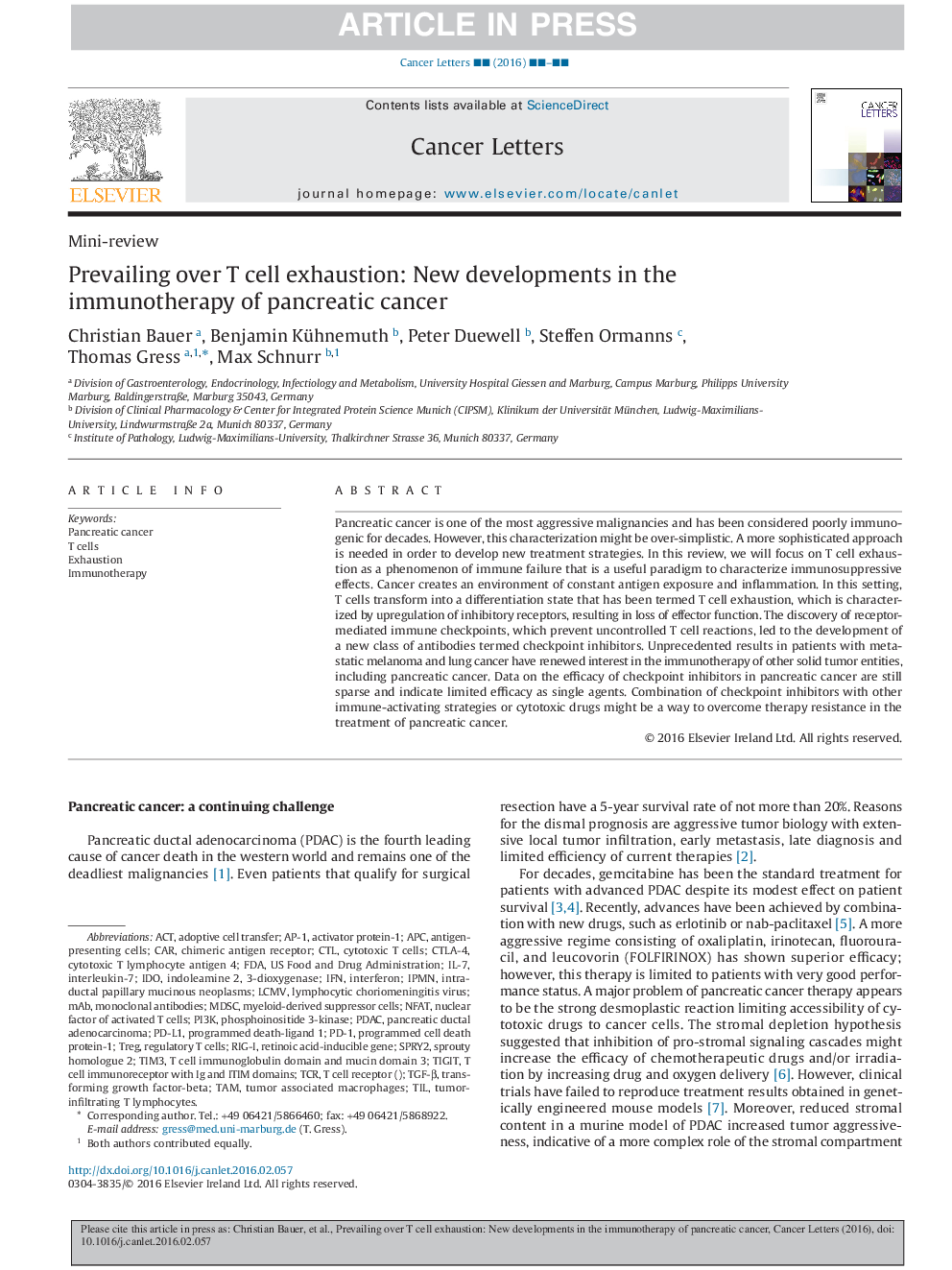| Article ID | Journal | Published Year | Pages | File Type |
|---|---|---|---|---|
| 10899288 | Cancer Letters | 2016 | 10 Pages |
Abstract
Pancreatic cancer is one of the most aggressive malignancies and has been considered poorly immunogenic for decades. However, this characterization might be over-simplistic. A more sophisticated approach is needed in order to develop new treatment strategies. In this review, we will focus on T cell exhaustion as a phenomenon of immune failure that is a useful paradigm to characterize immunosuppressive effects. Cancer creates an environment of constant antigen exposure and inflammation. In this setting, T cells transform into a differentiation state that has been termed T cell exhaustion, which is characterized by upregulation of inhibitory receptors, resulting in loss of effector function. The discovery of receptor-mediated immune checkpoints, which prevent uncontrolled T cell reactions, led to the development of a new class of antibodies termed checkpoint inhibitors. Unprecedented results in patients with metastatic melanoma and lung cancer have renewed interest in the immunotherapy of other solid tumor entities, including pancreatic cancer. Data on the efficacy of checkpoint inhibitors in pancreatic cancer are still sparse and indicate limited efficacy as single agents. Combination of checkpoint inhibitors with other immune-activating strategies or cytotoxic drugs might be a way to overcome therapy resistance in the treatment of pancreatic cancer.
Keywords
IL-7ACTAPCAP-1IDOIPMNRIG-ILCMVMDSCTregTIGITSPRY2TIM3FDATGF-βCTLA-4PDACPD-L1PI3KmAbNFATPD-1CTLTCrPancreatic ductal adenocarcinomacytotoxic T lymphocyte antigen 4antigen-presenting cellsUS Food and Drug AdministrationAdoptive cell transferIndoleamine 2, 3-dioxygenaseimmunotherapyinterferonIFNinterleukin-7TILTAMtransforming growth factor-betaTumor associated macrophagesExhaustionPancreatic cancercytotoxic T cellsT cellsMyeloid-derived suppressor cellsRegulatory T cellsNuclear Factor of Activated T Cellsphosphoinositide 3-kinaseCARprogrammed death-ligand 1Intraductal papillary mucinous neoplasmsLymphocytic choriomeningitis virusMonoclonal antibodiesactivator protein-1programmed cell death protein-1retinoic acid-inducible genechimeric antigen receptor
Related Topics
Life Sciences
Biochemistry, Genetics and Molecular Biology
Cancer Research
Authors
Christian Bauer, Benjamin Kühnemuth, Peter Duewell, Steffen Ormanns, Thomas Gress, Max Schnurr,
